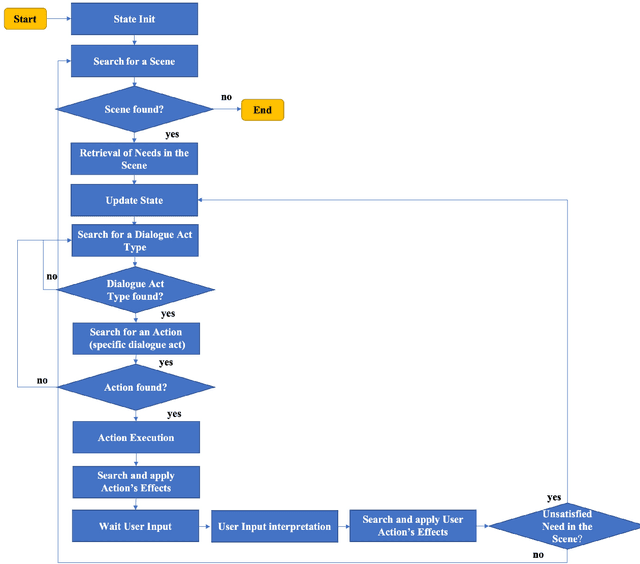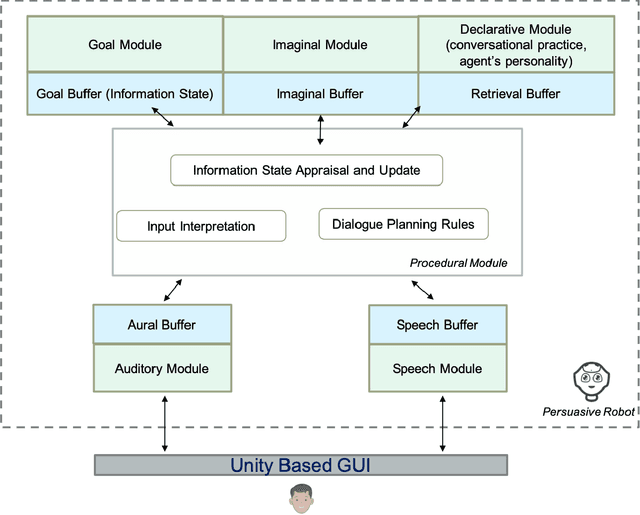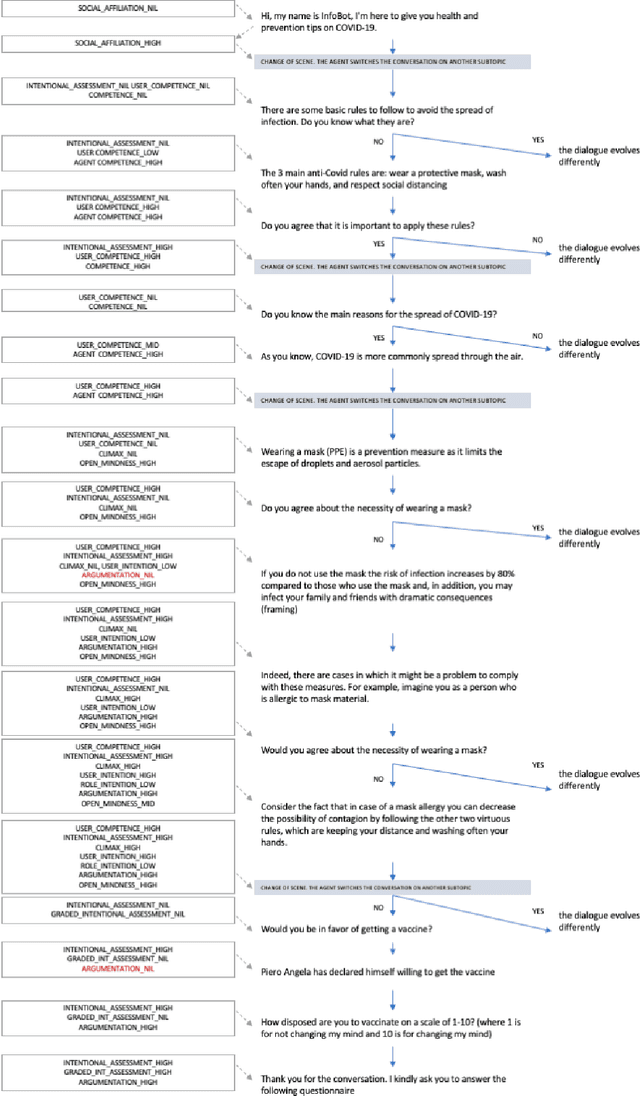Manuel Gentile
Social Practices for Social Driven Conversations in Serious Games
Jun 10, 2022Abstract:This paper describes the model of social practice as a theoretical framework to manage conversation with the specific goal of training physicians in communicative skills. To this aim, the domain reasoner that manages the conversation in the Communicate! \cite{jeuring} serious game is taken as a basis. Because the choice of a specific Social Practice to follow in a situation is non-trivial we use a probabilistic model for the selection of social practices as a step toward the implementation of an agent architecture compliant with the social practice model.
A Storytelling Robot managing Persuasive and Ethical Stances via ACT-R: an Exploratory Study
Jul 27, 2021



Abstract:We present a storytelling robot, controlled via the ACT-R cognitive architecture, able to adopt different persuasive techniques and ethical stances while conversing about some topics concerning COVID-19. The main contribution of the paper consists in the proposal of a needs-driven model that guides and evaluates, during the dialogue, the use (if any) of persuasive techniques available in the agent procedural memory. The portfolio of persuasive techniques tested in such a model ranges from the use of storytelling, to framing techniques and rhetorical-based arguments. To the best of our knowledge, this represents the first attempt of building a persuasive agent able to integrate a mix of explicitly grounded cognitive assumptions about dialogue management, storytelling and persuasive techniques as well as ethical attitudes. The paper presents the results of an exploratory evaluation of the system on 63 participants
* 20 pages, 7 figures
 Add to Chrome
Add to Chrome Add to Firefox
Add to Firefox Add to Edge
Add to Edge